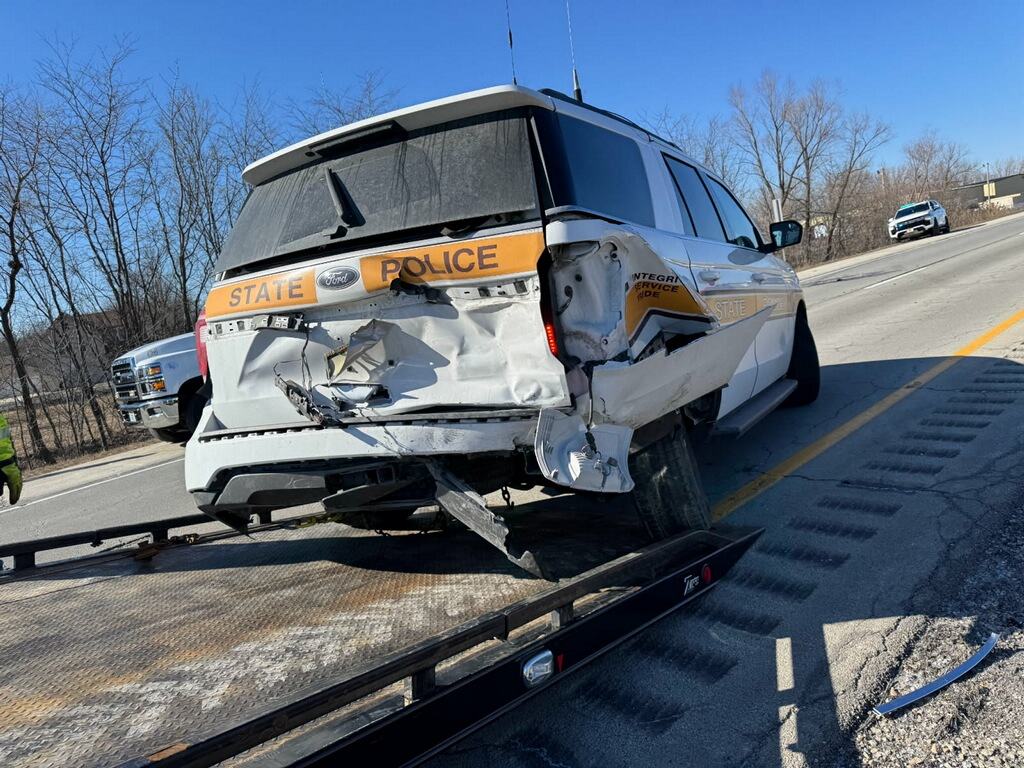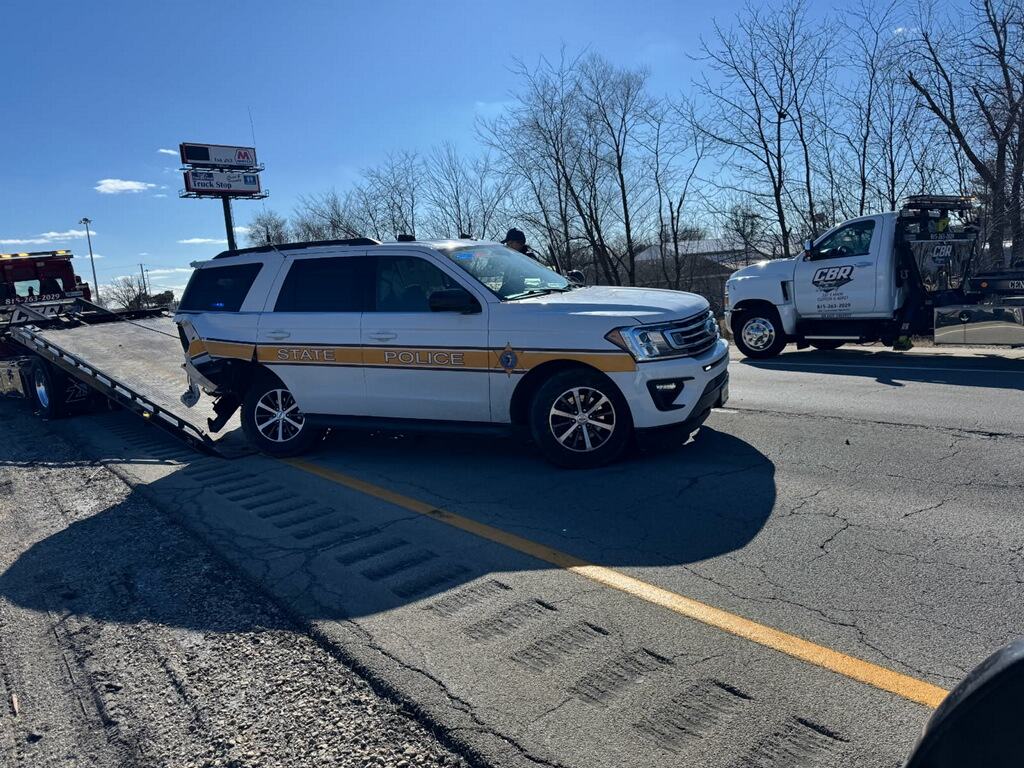ILLINOIS STATE POLICE SQUAD CAR STRUCK ON INTERSTATE 57 IN KANKAKEE COUNTY
ISP Experiences 3rd Move Over Law-Related Crash of 2025
March 3, 2025

FOR IMMEDIATE RELEASE
March 3, 2025
CHEBANSE – Illinois State Police (ISP) officials investigated a traffic crash that occurred on Interstate 57 involving an ISP trooper, who had just finished removing debris from the roadway, when their squad car was struck by a driver who failed to move over.
On March 1, 2025, at approximately 1:49 p.m., an ISP trooper responded to a report of debris in the roadway at mile post 302 near Chebanse. The trooper parked their squad car in the right lane of travel with emergency lights activated and removed the debris. The trooper returned to their squad car and the squad car was struck in the rear by a Lincoln SUV that failed to move over. The trooper was transported to an area hospital with non-life-threatening injuries. The driver of the Lincon, 66-year-old Harold McComb from Mahomet, Illinois, was transported to an area hospital with minor injuries. McComb was cited for Failure to Reduce Speed to Avoid an Accident and a Scott’s Law violation.
In 2025, ISP has already suffered three Move Over Law-related crashes. In 2024, ISP suffered 27 Move Over Law-related crashes with 12 troopers injured and one death. In 2023, ISP had 21 Move Over Law-related crashes with seven troopers injured. ISP reminds the public the Move Over Law, also known as “Scott’s Law” in Illinois, requires all drivers to move over when approaching an emergency vehicle or any vehicle with its emergency or hazard lights activated.
A person who violates the Move Over Law faces a fine of no less than $250 and no more than $10,000 for a first offense. If the violation results in injury to another person, the violator’s driver’s license will be suspended for a mandatory period of anywhere between six months and two years. Additional information about ISP related crashes can be found at the following link: https://isp.maps.arcgis.com/apps/dashboards/340d57cd956c453da2de25af804c268d.


The charges are not evidence against the defendant, and the defendant is presumed innocent until proven guilty beyond a reasonable doubt in a court of law.
###